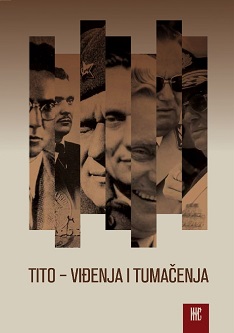Josip Broz Tito: Različite istorijske perspektive
Josip Broz Tito: Different Historical Perspectives
Author(s): Latinka Perović
Subject(s): Governance, Political history, International relations/trade, WW II and following years (1940 - 1949), History of Communism
Published by: Institut za noviju istoriju Srbije
Keywords: Josip Broz Tito; historiography; society; Communist Party; Yugoslavia; international politics;
Summary/Abstract: The interpretation of the personality of Josip Broz Tito based on researches can hardly be put into accordance with ideological opinions aired both during his historical activity and after the colapse of socialism and Yugoslavia. Therefore there is a fundamental need to contextualize the personality of Josip Broz Tito within the framework of Yugoslav and world history in which he also has his place, particularly in the context of break with Stalin in 1948. The appearance and activity of Josip Broz Tito was no accident in the Yugoslav history. It is the expression of contradictions of social development in the interwar period with historical roots that are much deeper than the revolutionary change of power in 1945. In that context, it isn’t enough just to register that the personality cult existed, but it is necessary to explain its genesis and the very possibility of the cult’s existence. PerspectivesonTito'spersonality are various: the wartime commander, Yugoslav and world statesman, renegade of the international communist movement at the time of its unanimity, decades-long Party chief. The communist component is without doubt decisive in viewing Tito. It is decisive both in domestic political and international context that was marked by the rift of 1948, but also by not giving up the communist idea. Particularly interesting is the perspective viewing Tito in the context of domestic politics, as a leader of a socialist country that changed fast - to be sure, within the given socialist formula. Without insight into the starting point of the results after 1945 every assesment of those results would be inconvincible. However, undisputed will remain the fact that in many ways progress was made that doesn't cast even a shadow of doubt for anyone realistically assessing an epoch and its protagonists. Especially important is the capability of Josip Broz Tito to establish a direct consensus, bypassing institutions even of the party-state. This was the result of social resonance with which the ideas of social equality, self-management and brotherhood and unity met. From that corner he received support to remove from the Party those „who wouldn’t obey" and those who were „putting spokes in our wheels". Indespensible for an assesment of political activity of Josip Broz Tito is his balancing ability in which he excelled. This goes both for domestic and foreign policy and particularly for the relation between the ideological dogma and political practice. It was the matter of objective complexity and therefore it cannot be simplified even in interpretation without damage to historical cognition.
Book: Tito - Viđenja i tumačenja
- Page Range: 19-27
- Page Count: 9
- Publication Year: 2011
- Language: Serbian
- Content File-PDF

